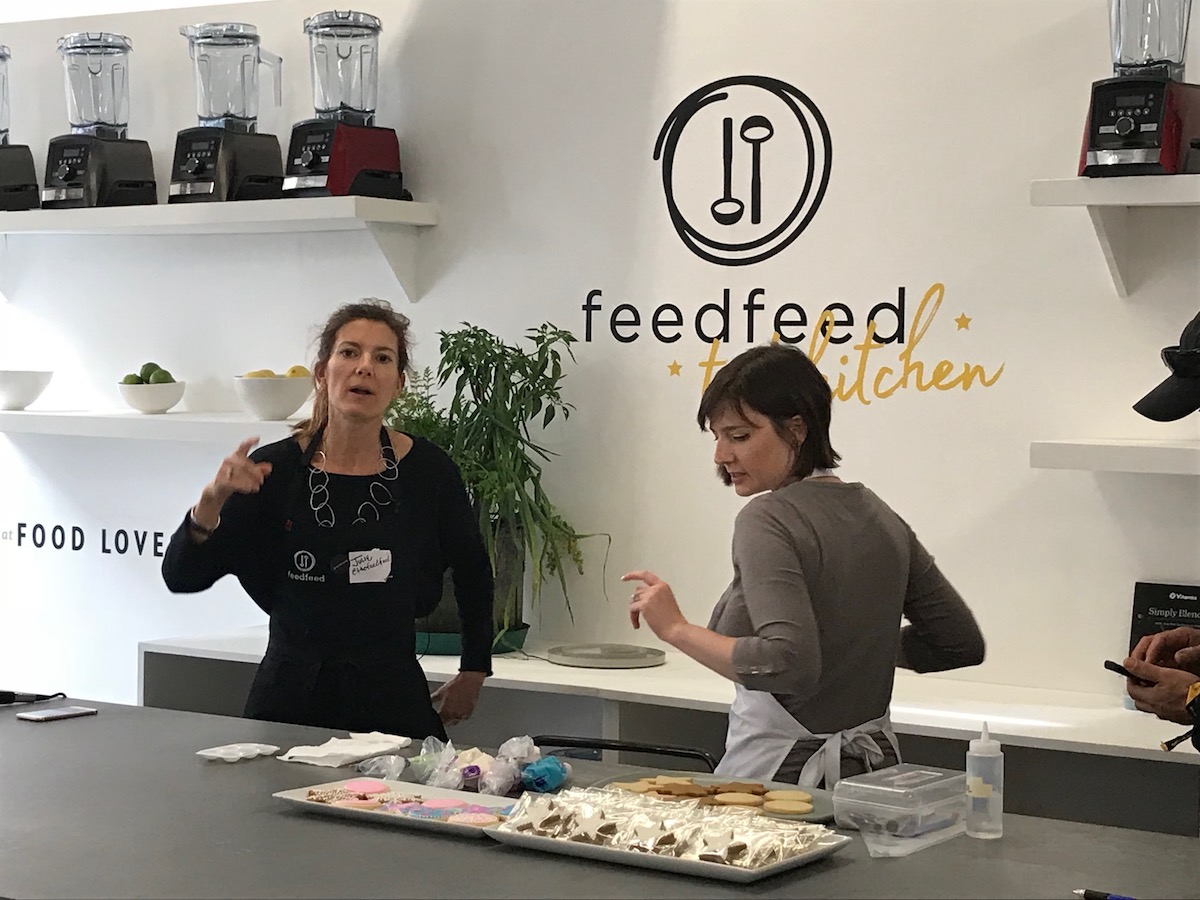3D printers to decorate cookies, platforms to reduce waste of ugly produce, beer brewed with surplus bread, the Impossible Burger: these were among the dozens of exhibitors and panelists featured at the Food Loves Tech expo in Industry City earlier this month.
Hosted by food magazines Edible Manhattan and Edible Brooklyn, the event brought together leaders in innovation and disruption from across the food ecosystem. Over two days packed with panel discussions, test kitchen demonstrations and hyper-stimulated palates, expo-goers interacted with the products and people designing the future of food.
The two-story Industry City space hosted 70+ exhibitors, ranging from commercial-scale indoor farms like Gotham Greens and AeroFarms to Smallhold’s miniature mushroom farm, to eatCultured, the company elevating foods through fermentation. Its first product is cultured coffee — the secret formula produces an exceptionally smooth drink, low in acid with a delayed caffeine release.
Across the courtyard, moderators posed major food systems questions to their panelists: How will we feed a growing population? What role for indoor farming in future of food? What innovations are mostly hype? What is the verdict on GMOs? How should we grow food in the future?

A panel at Food Loves Tech. (Photo by Nina Sparling)
The debates remained heated throughout. Each panel included speakers with stark differences of opinion and approaches to solving the problems at hand. Take the panel Ariel Lauren Wilson, editor of Edible, moderated on Friday morning that explored genetics’ role in the food supply.
Dr. Marion Nestle, professor emerita at NYU, criticized GMO technologies as a mechanism of corporate control over the food supply and farmers, citing recent investigations into contamination from Dicamba. Though sympathetic to the risks, Sam Kass, former White House chef and senior policy advisor for nutrition and founder of TROVE, insisted on the necessity of the technology in feeding a growing population. “This is a tool that has to be on the table,” he said. “We have the chance to produce more nutrient-dense crops in a more sustainable way.”
And Louisa Burwood Taylor, head of media and research at AgFunder, pointed to companies like Benson Hill Biotech that adopt the technology to different ends — and at a very different scale. “This technology is now moving beyond the big agribusinesses that are probably part of why we see this so negatively,” Burwood Taylor said.
While many of the panels explored intensive and scalable tech-driven approaches to the future of farming and food, Danielle Nierenberg, president of Food Tank, moderated a discussion that focused on strategies for producing and distributing food from the ground up. “Silver bullet technology is not the answer,” Nierenberg said, as she directed the conversation around how farmers in the developing world are creating innovative solutions in the face of climate change and insecurity.
“Technology has a really important role to play, whether its rainwater catchment tanks or whether its cellphones,” said panelist Andrea Egan of the United Nations Development Programme, who has worked on the ground across the global south. Some of the simpler interventions carry a lot of weight, she said — transformative potential isn’t only in large-scale intensive solutions.

Exhibitors at Food Love Tech. (Photo by Nina Sparling)
Through its demos, exhibitors, and discussions, Food Loves Tech struck a balance between high-tech and low-tech projects. BeeHex ran its cookie decorating printer as Amber Spiegel of SweetAmbs walked observers through her techniques for old-fashioned cookie decorating in the Feedfeed test kitchen — she does it all by hand with royal icing, pink pearl dust, brushes and piping bags, but built her brand online.
And food, naturally, was plentiful: the longest line extended from the Saxon + Parole table, where chef Brad Framerie served up slider-sized samples of the Impossible Burger: lips were licked and seconds were had.
Many first stopped for an appetizer of oysters, shucked fresh by the Billion Oyster Project, washed down with a glass of Sauvignon Blanc from Proud Pour, which uses proceeds from wine sales to restore oysters to local waters.
Join the conversation!
Find news, events, jobs and people who share your interests on Technical.ly's open community Slack
